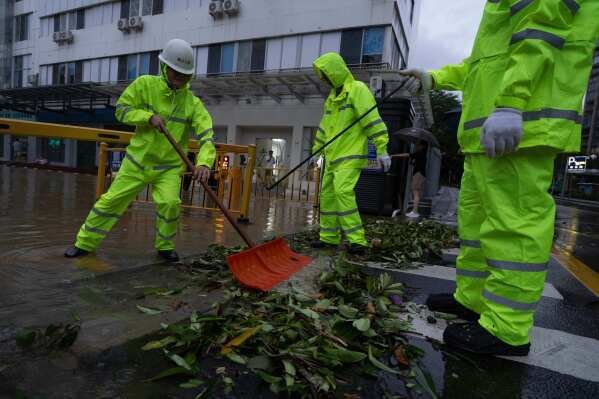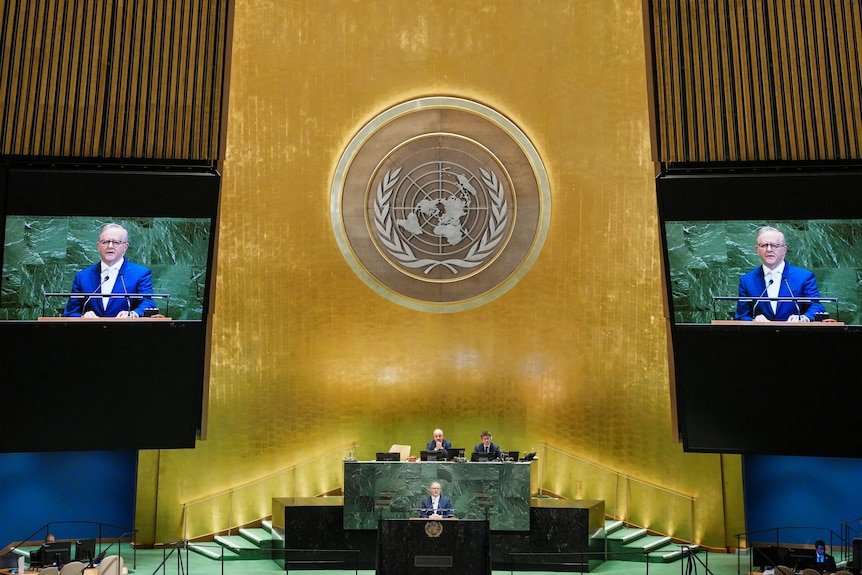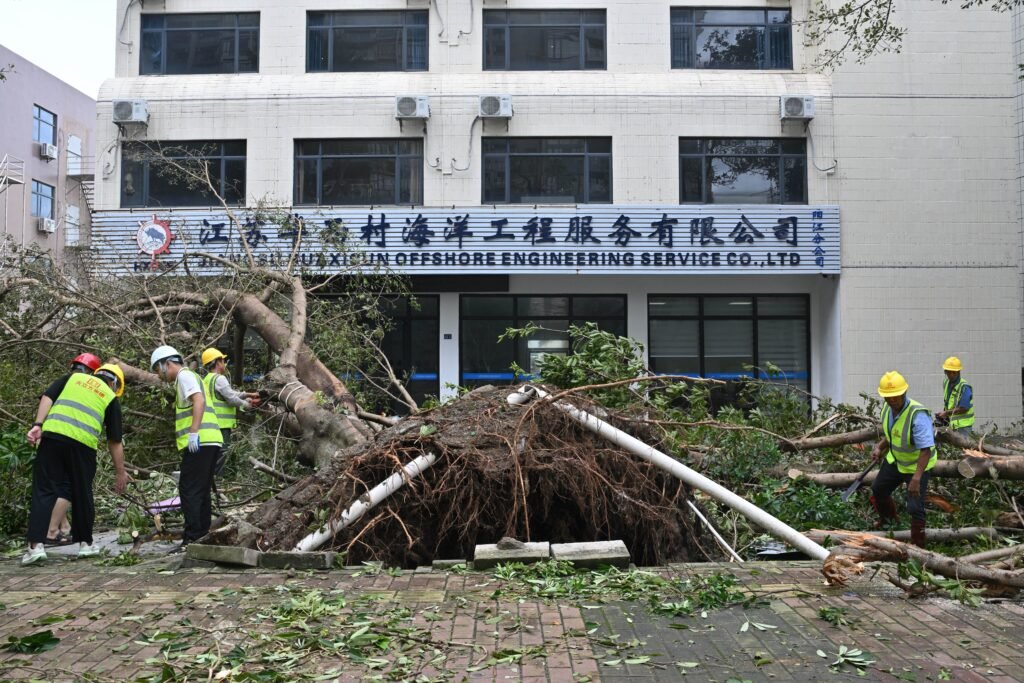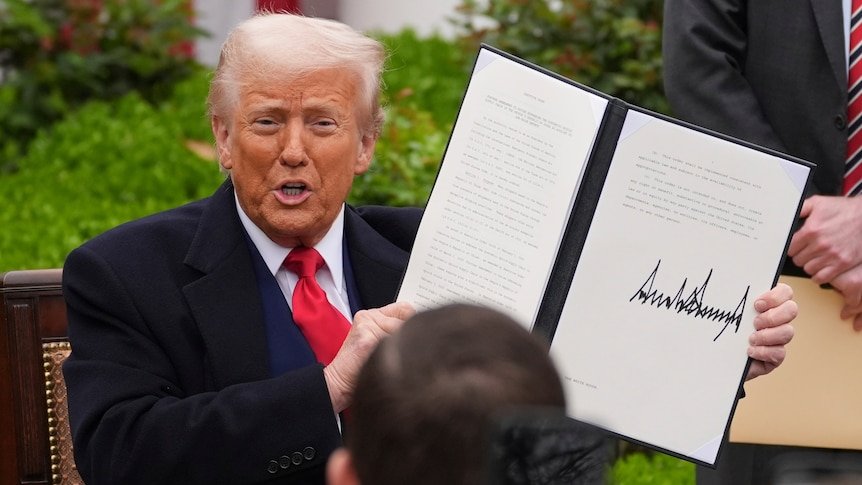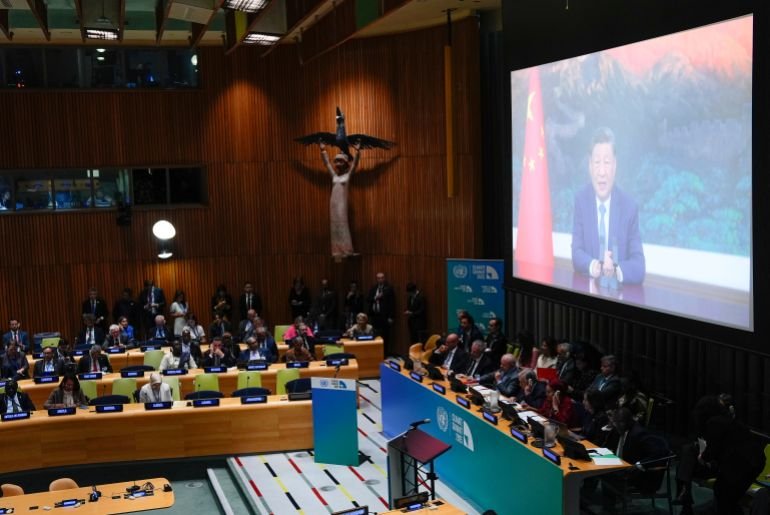WASHINGTON (AP) — President Donald Trump has signed an executive order that he says will allow TikTok to continue operating in the United States in a way that meets national security concerns laid out by the law.
President Joe Biden signed legislation last year calling for China’s ByteDance to sell TikTok’s assets to an American company by early this year or face a nationwide ban, but Trump has repeatedly signed orders that have allowed TikTok to keep operating in the U.S. as his administration tries to reach an agreement for the sale of the social media company.
Much is still unknown about the actual deal in the works, but Trump said Thursday that Chinese leader Xi Jinping has approved it. Any major change to the popular video platform could have a huge impact on how Americans — particularly young adults and teenagers — consume information online.
The Chinese embassy in Washington didn’t immediately respond to an AP inquiry seeking confirmation that China has signed off on the proposed framework deal.
About 43% of U.S. adults under the age of 30 say they regularly get news from TikTok, higher than any other social media app including YouTube, Facebook and Instagram, according to a Pew Research Center report published Thursday.
Trump said in response to a question at a signing ceremony Thursday that he would make the American- controlled TikTok “100% MAGA” if he felt he could, but he intends for “every philosophy, every policy” to be “treated right.”
Vice President JD Vance said the deal ensures that “American investors will actually control the algorithm” that determines the content seen on the social media app. He said more information about the deal will be revealed in the coming weeks.
Who will control the new TikTok venture
?
Under the terms of the deal that have so far been revealed by the White House, the app will be spun off into a new U.S. joint venture owned by a consortium of American investors — including Oracle and investment firm Silver Lake Partners.
Though the details have yet to be finalized, the investment group’s total stake in the new venture would be around 80%, while ByteDance is expected to have a 20%, or smaller, stake in the entity. The board running the new platform would be controlled by U.S. investors. ByteDance will be represented by one person on the board, but that individual will be excluded from any security matters or related committees.
TikTok’s new owners include many whose business or political interests are tied to Trump, including Oracle co-founder Larry Ellison and Rupert Murdoch, raising questions about whether political influence will be exerted into the platform.
Although he stepped down as Oracle’s CEO more than a decade ago, Ellison remains heavily involved as chairman and chief technology officer. Now 81, he could be in line to become a behind-the-scenes media power player, having already helped finance Skydance’s recently completed $8 billion merger with Paramount, a deal engineered by his son, David.
Trump also mentioned Dell founder Michael Dell will be an investor in the new venture.
TikTok users could now “get the editorial policies of the people who now have control of the company,” said David Greene, civil liberties director of the Electronic Frontier Foundation. ”It won’t be 100% MAGA. The question is how it will treat criticism of him and people he likes.”
What we know about the algorithm powering t
he platform
The recommendation algorithm that has steered millions of users into an endless stream of video shorts has been central in the security debate over TikTok. China previously maintained the algorithm must remain under Chinese control by law. But a U.S. regulation that Congress passed with bipartisan support said any divestment of TikTok must mean the platform cut ties with ByteDance.
American officials previously warned the algorithm — which is a complex system of rules and calculations that platforms use to deliver content to your feed — is vulnerable to manipulation by Chinese authorities, who can use it to shape messaging on the platform in a way that’s difficult to detect, but no evidence has ever been presented by U.S. officials showing that China has attempted to do so.
Trump, during his first term, signed an executive order attempting to ban the app if it didn’t split off its U.S. business, warning that TikTok’s “data collection threatens to allow the Chinese Communist Party access to Americans’ personal and proprietary information.”
Trump has since changed his approach to TikTok, often citing its role in helping him reach young voters in the 2024 presidential election.
Although the details remain unclear, a Trump administration official said that a licensed copy of the ByteDance created algorithm — retrained solely with U.S. data — will power the new U.S. version of the app. Administration officials say this retraining effort will nullify any risk of Chinese interference and influence.
Vance said “we wanted to keep TikTok operating” but address security concerns so that “Americans can use TikTok but use it with more confidence than they had in the past.”
Young people especially “really wanted this to happen,” Trump said during the signing ceremony.
That makes it unclear if the U.S. version of TikTok will be a different experience than what users in the rest of the world are used to. Any noticeable changes made to a social media platform’s service raises the risk of alienating its audience, said Jasmine Enberg, an analyst for the research firm eMarketer.
In a prime example of how a change of control can reshape a once-popular social media platform, billionaire Elon Musk triggered an almost immediate backlash after he completed his takeover of Twitter nearly three years ago.
But Musk made extremely visible changes, including changing its name to X, pulling back on its content moderation and adding exclusive features for paid subscribers. The changes that gradually occur while different data is fed into the U.S. copy of TikTok’s algorithm could be subtle and unnoticeable to most of its audience.
“Social media is just as much about the culture as it is the technology, and how users will take to new ownership and potentially a new version of the app is still an open question,” Enberg said.
Treasury Secretary Scott Bessent speaks after President Donald Trump signed an executive order regarding TikTok in the Oval Office at the White House, Thursday, Sept. 25, 2025, in Washington, as Attorney General Pam Bondi and Vice President JD Vance listen. (AP Photo/Alex Brandon)
Treasury Secretary Scott Bessent speaks after President Donald Trump signed an executive order regarding TikTok in the Oval Office at the White House, Thursday, Sept. 25, 2025, in Washington, as Attorney General Pam Bondi and Vice President JD Vance listen. (AP Photo/Alex Brandon)
What motivated China to make this deal
Beijing once called the demand that TikTok be spun off from its Chinese parent company an act of “robbery,” but Chinese officials changed their tune as the U.S.-China trade war progressed.
Following the announcement of a possible TikTok framework deal after U.S.-China trade talks in Spain, some observers believed that China was able to extract concessions from the U.S. on loosening trade restrictions in exchange for the TikTok deal. Others believe China was willing to do so to pave the way for a meeting between Xi and Trump.
A TikTok deal would allow China to keep the ball rolling on trade negotiations, said Sun Yun, director of the China program at the Washington-based think tank Stimson Center. “TikTok alone does not compare with the importance of an amicable U.S.-China relations and the positive momentum that prevents many negative development from happening.”
Dimitar Gueorguiev, associate professor of political science at Syracuse University, said TikTok has become an “expendable concession” to Beijing because it is no longer a disruptive newcomer as it was five years ago.
TikTok’s highly personalized “For You” video feed was seen as its secret sauce five years ago, when Trump first threatened to ban the app, but Instagram and other rivals now work similarly.
Gueorguiev argues that Beijing is more interested in retaining access to U.S. technology and services, at least in the short term, so it can build up self-sufficiency in semiconductor, artificial intelligence and advanced manufacturing.
“That is the front line of technological competition,” Gueorguiev said. “TikTok, by contrast, is a maturing consumer app with diminishing strategic weight.”


